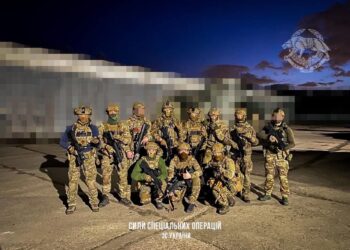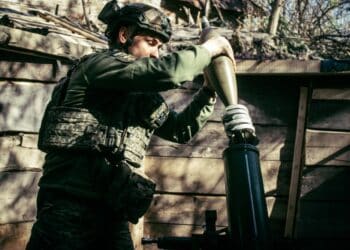The United Kingdom’s Special Air Service (SAS) is currently facing recruitment challenges due to a reduction in overall Army personnel and a concurrent increase in operational demands. Reports indicate that since the army’s troop numbers have been consistently declining—from 110,000 at the start of the war on terror in 2001 to an anticipated 73,000 by next year—the pool from which the SAS typically recruits has diminished considerably. This reduction has occurred alongside increased operational commitments in regions such as Iraq, Syria, the Baltics, and Ukraine.
The SAS, along with the Special Boat Service (SBS), relies heavily on the infantry, particularly the Parachute Regiment and the Royal Marines, to supply candidates for their rigorous selection process. However, recent figures reveal a stark shortfall in these regiments. The Parachute Regiment’s numbers have dropped by almost 10% since 2016, while the Royal Marines have seen a reduction of over 1,000 marines in the same period. This shrinkage has compounded the difficulty in meeting the high standards of special forces recruitment, without lowering selection criteria.
Defense sources have highlighted the increasing number of special forces personnel choosing to leave the service, which exacerbates the strain on maintaining operational capability. The result is an unsustainable cycle where the pressure on existing SAS and SBS members potentially harms retention rates, further stressing the forces. The British Ministry of Defence (MoD) has acknowledged the recruitment and retention challenges and is implementing measures to address these issues. These include improved career opportunities, the possibility for former military personnel to rejoin, and pay increases—the largest in over two decades. The MoD insists that despite the reduced numbers, the effectiveness of the British Army remains robust, supported by substantial investments in defence and participation in major NATO exercises.
Expanded Coverage: Telegraph








